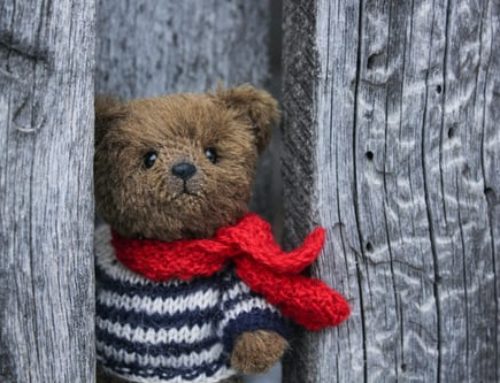When I was five, my cat, White Flower, had a litter of kittens. I loved them all. I watched them wriggling close to White Flower. Under the watchful eye of both my mother and my cat, I cuddled each kitten once their eyes opened. I remember my shock when I found one of the tiny kittens dead. I was beyond comfort for days. My parents did not know what to do or say.
While modern society likes to act as if death does not exist, the fact is, most people experience the death of something or someone they love early in life. It hurts. A lot. It isn’t a simple thing when a child leaves a favorite toy behind on vacation. The kids I know lament over the loved object for days. They experience inconsolable grief. Their anguish is apparent to everyone near. How can we help when something even more precious and irreplaceable is lost? Raw emotions are not rational. It is not possible to reason with this kind of grief.
Pets die. Grandparents die. Deadly accidents happen. Sometimes there is a diagnosis of terminal illness. Is it possible to prepare the children we love for an expected death of pet or grandparent? In many cases, we are also in pain. Grief hurts. How can we help our children grow in faith and trust of God in such painful experiences?
Prepare:
Observe nature with your children. Watch buds swell, flowers bloom, and then die away. Talk about the cycle of life in nature as an ordinary conversation. Children enjoy fall leaves. Remember with them the tiny new green leaves of spring. In small, non-painful ways, show children that death is part of life. God created the earth and everything in it. That includes birth, growth, decline, and death of all living things. Teach your children to observe that this is natural.
Honesty:
When our dog, Forte, developed kidney failure we told our grandchildren that he was sick and would probably die. Over the next couple months, we occasionally mentioned Forte’s illness. Their parents also sometimes mentioned it. Once in a while they’d ask about it when they visited. The kids were sad when he died. They missed him. They talked about missing him for a year or more. But, Forte wasn’t their dog. It wasn’t devastating.
It is even more important to talk about a dog’s illness when you know your children will be devastated by the loss. Talk about Grandpa’s health. Mention it, but don’t dwell on it. Let your children ask questions. Answer with truth and concrete words. Find out what answers your children generate. Adults like to blur difficult topics with abstract words. Be as direct and gentle as you can while being honest.
Allow Pain:
When a child falls down and gets hurt, we deaden the pain with hugs, kisses, ice, and bandages. There is no way to deaden the pain of grief. It hurts. Acknowledge the pain. Share your own grief. Let your child see that it is okay to be sad. Empathy is learned through pain. Hold your children and cry with them. Allow your children to talk about it as much or as little as they want. Let your children tell you what they think happened. Let your child comfort you as you comfort them. Hugs help, but cannot remove the pain.
Honor and Respect:
You can teach your children to value life by the way you treat death. Our children had topical fish as their first pet experience. When a fish died, the kids were horrified and sad. We placed the deceased in a small box well cushioned with tissues and held a private family funeral before burying it in our backyard. The act of remembrance and respect helped. Flushing the dead fish might have been more practical, but it would have added to the pain of loss. It would also show disrespect for a well loved life.
Find a way to create a memorial to the loss. Have a family service of remembrance as an act of faith in God’s goodness. If you have a yard, consider planting something in memory of the loss. We have a plaster cast of Forte’s footprint that we add to our Christmas tree. Our grandchildren see it and remember the dog they loved. We have photographs of places we have lived and people we have loved to help us remember other losses. All these are ways to respect your children’s feelings and honor both the living and the dead.
Allow Time:
My husband’s mother died before our children had a chance to know her. They grieved for the grandmother they never knew for years. When our cat died, their grief over their grandmother was re-ignited. Processing grief takes time. It cannot and should not be rushed.
Wait until your children are ready before you give your ideas. Expect the subject to come up over and over again for weeks, months, and years. Answer questions as honestly as you can. Share your faith in the goodness of God. Share the hope of eternal life. Share the Bible promises that God will wipe away every tear.
Your comments are both welcome and helpful. Thank you.






